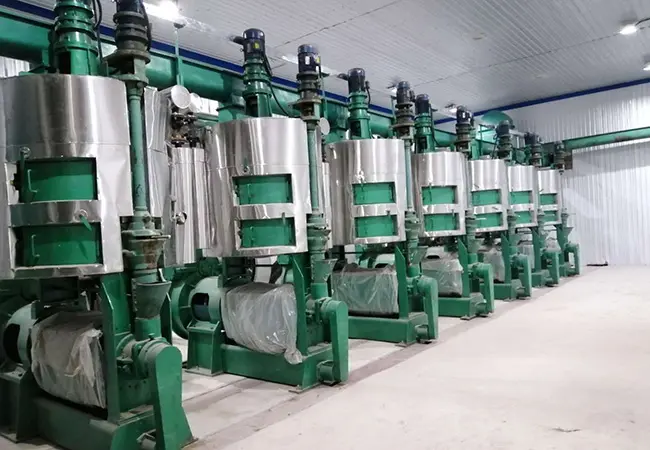Հկտ . 22, 2024 10:02 Back to list
Canola Oil Production Equipment Suppliers and Manufacturers Worldwide
Canola Oil Plant Manufacturers Leading the Way in Healthy Oil Production
In recent years, the demand for healthier cooking oils has significantly increased, with canola oil emerging as one of the most sought-after options. Known for its light flavor, high smoke point, and heart-healthy properties, canola oil is extracted from the seeds of the canola plant, a type of rapeseed developed specifically for oil production. The rise in popularity of canola oil has led to a proliferation of canola oil plant manufacturers, each contributing to the growing market with innovative processes and technology.
The Importance of Quality Manufacturing
The quality of canola oil is largely determined by the manufacturing process. High-quality canola oil plants employ advanced methods to ensure that the oil retains its nutritional benefits while also achieving an appealing flavor and aroma. Key aspects of the manufacturing process include seed selection, oil extraction, and refining.
1. Seed Selection Quality canola oil production begins with the careful selection of seeds. Manufacturers often choose genetically modified (GM) or non-GM seeds based on consumer demand and market trends. The selected seeds must have a high oil content and resistance to pests and diseases, ensuring optimal yield and quality.
2. Oil Extraction The extraction of oil from canola seeds is a critical phase. The most common methods include mechanical pressing and solvent extraction. Mechanical pressing is a more traditional method that uses physical force to extract oil. This method is often preferred for organic oils as it doesn't use chemicals. On the other hand, solvent extraction, which uses hexane, is more efficient and yields a higher quantity of oil. Leading manufacturers often optimize these processes to ensure that the oil retains its nutritional properties while minimizing waste.
3. Refining Process Once extracted, the crude oil undergoes refining to remove impurities, odors, and any remaining solvent. This is essential for producing a clean, palatable oil that meets food safety standards. The refining process typically includes degumming, neutralization, bleaching, and deodorization. Advanced technologies such as molecular distillation and cold refining are employed by some manufacturers to enhance the oil's quality and shelf life.
Innovations in Canola Oil Production
canola oil plant manufacturers

Canola oil plant manufacturers are continuously innovating to improve their production processes. Automation and new technologies play a significant role in enhancing efficiency and ensuring consistent quality. Many manufacturers are investing in modern extraction equipment and refining technologies, which not only increase production capacity but also reduce energy consumption and environmental impact.
Additionally, there is a growing trend towards sustainability in the canola oil industry. More manufacturers are adopting practices that reduce their carbon footprint, such as using renewable energy sources and implementing waste management solutions that transform byproducts into useful materials. This commitment to sustainable practices appeals to environmentally conscious consumers and businesses alike.
Market Opportunities and Challenges
As the health benefits of canola oil become more widely recognized, the market continues to expand. Consumers are not only looking for high-quality cooking oils but also products that align with their dietary preferences, such as non-GMO and organic options. Canola oil plant manufacturers that adapt to these trends by offering a diverse range of products are likely to thrive in a competitive market.
However, the industry also faces challenges, including fluctuations in raw material prices and competition from other cooking oils like olive, avocado, and sunflower oils. To remain competitive, canola oil manufacturers need to focus on branding, differentiation, and quality assurance.
Conclusion
Canola oil plant manufacturers play a vital role in supplying a healthy and versatile cooking oil to consumers. Through innovative processes, commitment to quality, and sustainability, these manufacturers are shaping the future of the cooking oil market. As consumer preferences continue to evolve, the ability to adapt and meet these demands will ensure that canola oil remains a staple in kitchens around the world.
-
Sunflower Oil Seed Press Machine - High Efficiency, Durable & Cost-effective Extraction
NewsJun.24,2025
-
High-Efficiency Physical Oil Refining Unit - Leading Exporters & Trusted Companies
NewsJun.10,2025
-
High-Efficiency Animal Oil Refining Machine - Leading Exporters & Reliable Companies
NewsJun.10,2025
-
Camellia Oil Mill Machine for Efficient Oil Extraction Leading Exporters & Companies
NewsJun.10,2025
-
Premium Pressing Shaft for Oil Press Machines Exporters
NewsJun.10,2025
-
High-Efficiency Centrifugal Filters Durable Industrial Separation
NewsJun.10,2025
